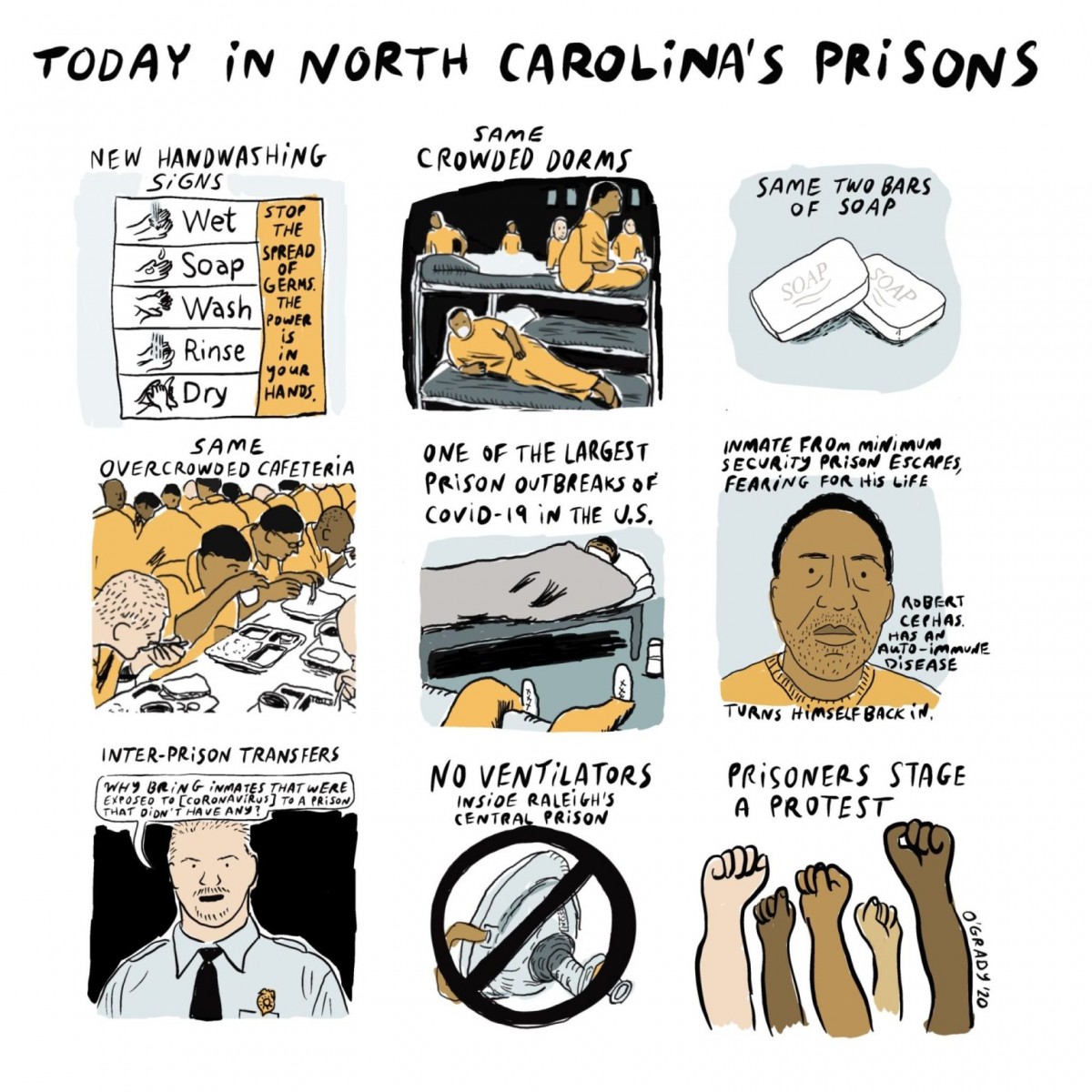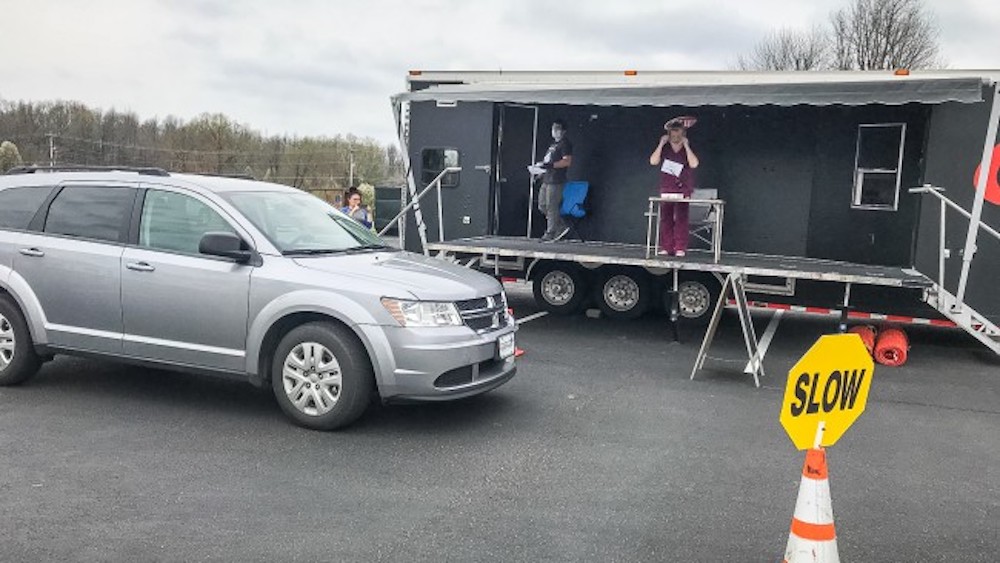There’s a perception out there that rural residents are less concerned about the pandemic. A national poll says otherwise.
Residents of rural America are taking the COVID-19 pandemic just as seriously as the rest of the nation, a national online poll says.
Nearly nine out of 10 rural respondents say they will probably continue to practice social distancing and other COVID-19 precautions, even as states begin to lift restrictions, the poll found.
The poll was conducted for the Bill & Melinda Gates Foundation by Civis Analytics. (Disclosure: The Gates Foundation is a financial supporter of the Daily Yonder.) Self-selected volunteers participated in the online poll, which was weighted to make the participants better reflect the targeted population. (More on the methodology is at the end of the story.)
About three-quarters of rural respondents said they are somewhat or very concerned about the coronavirus. The response from rural participants was slightly lower than the national response. But the 3-point gap is within the poll’s margin of error, meaning the rural and national responses are statistically indistinguishable.
The same is true on a wide range of COVID-19-related issues.
“Counter to the national narrative, we find that rural communities are just as committed to staying at home and avoiding all non-essential contact with others as Americans nationwide,” the poll’s analysts wrote.
About half of rural and national respondents agree that their states have taken appropriate action to contain COVID-19. Only 5 to 6 percent of rural and national respondents said they think government has overreacted to the pandemic.
About two-thirds of rural and national respondents are committed to social-distancing.
And about three-quarters of rural and national respondents said they have avoided public spaces and crowds during the pandemic.
Rural respondents are slightly less worried about job security. About a third of rural respondents said they are very unlikely to lose their job because of the pandemic. Nationally, only a quarter of respondents said job loss is very unlikely. (The Daily Yonder’s most recent jobs report confirms that job losses from March to April were not as heavy in rural areas as in urban ones.)
But employment concerns were much more likely among rural people of color than for whites. “Employed rural whites are significantly more job secure than employed rural people of color,” the report’s authors said. More than half of rural whites said job loss was very or somewhat unlikely. But only about a quarter of rural people of color said job loss was unlikely.
Rural people had similar levels of trust in information sources, except when it comes to information provided by President Donald Trump and Vice President Mike Pence. Just over 55 percent of rural respondents said they strongly or slightly trust the president and vice president, while nationally the figure is 45.4 percent.
Otherwise, rural people’s levels of trust were similar to the nation’s, with personal physicians ranking highest in trust, followed in descending order by local public health officials, federal health officials and friends and other associates. The lowest-ranking institution on the list is the World Health Organization, which about six in 10 Americans (both rural and urban) trust either strongly or slightly.
Rural respondents’ attitudes toward COVID-19 also varied a bit by region. Rural Southerners were more likely to wish their states were doing more to control the spread of the coronavirus than rural residents in the Northeast. Nearly 29 percent of rural Southerners said they wish government would do more, while only 17.5 percent of rural people living in the Northeast thought so.
Poll Methodology
The poll was conducted April 24-26. It collected approximately 7,000 responses nationally through self-selecting web panels. Approximately 1,200 respondents were identified as rural, based on ZIP Codes and a methodology developed by Jed Kolko. Responses were weighted based on a range of criteria to ensure that the respondents represent the target population, according to a statement provided by Civis. The margin of error was +/-4.3 percent.
Online polling can create problems for rural participation, but polls by telephones are not necessarily more effective, the pollsters wrote in their report.
“One of the limitations of web panels is that we miss out on those without internet access, which does disproportionately impact our ability to reach rural communities, specifically individuals who have lower incomes,” the report said. “Phone surveys unfortunately do not capture hard-to-reach communities better than web panels.”
This piece was originally published by the Daily Yonder.



